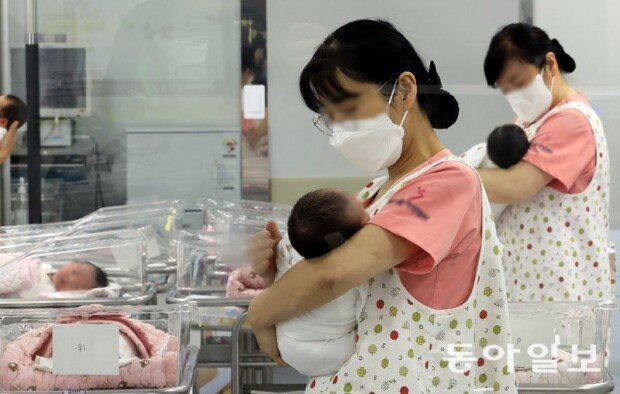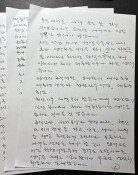13% more babies born in October, the largest increase in 14 years
13% more babies born in October, the largest increase in 14 years
Posted December. 27, 2024 07:40,
Updated December. 27, 2024 07:40

The number of babies born in October increased by more than 13% compared to the same month last year, marking the largest rise in nearly 14 years. Every province and city across the country experienced louder baby cries with the arrival of more newborns. The number of marriages has also been steadily increasing, suggesting that the total fertility rate—the average number of children a woman is expected to have in her lifetime—currently at 0.72 may rebound this year for the first time in nine years.
According to population trends released by Statistics Korea on Thursday, the number of births in October was 21,398, an increase of 13.3 percent, or 2,520 babies, compared to the same month last year. The number of births has remained at 20,000 for four consecutive months since July, and the rate of increase has been the highest for any month since November 2010 (17.5%). This marks the largest increase in 12 years since October 2012 (3,530).
Regionally, more babies were born than in the previous year in every province and city. This marks the first time since March 2015 that the number of births has increased nationwide. Among cities and provinces, Sejong (29.9%), Incheon (28.2%), and Ulsan (20.0%) recorded the highest birth rates, while North Gyeongsang Province (1.6%) and South Gyeongsang Province (1.9%) had the lowest. In Jeju, Gangwon, and Gwangju, the number of births rebounded from a declining trend.
The increase in births is likely due to marriages postponed during the COVID-19 pandemic, which has now become endemic. In October, marriages rose by 22.3% (3,568) from a year earlier, reaching 19,551, marking the seventh consecutive month of growth since April. This brings the total number of marriages through October to 181,322, an increase of 13.8% compared to the same period last year. This represents the largest increase since the statistics began.
“The marriage rate is increasing significantly, especially among those in their early 30s,” said an official from Statistics Korea. “The recent positive shift in attitudes toward marriage and the government's comprehensive measures to boost fertility may have contributed to this trend.”
If the trend continues in November and December, the annual number of births could rebound for the first time in nine years. The number of babies born in the first 10 months of the year was 199,999, just shy of 200,000. This figure is 1.9% higher than the same period last year. The cumulative number of births was negative year-on-year through August but turned positive (0.7%) in September, with further growth in October. The annual number of births has declined since 2015 when it last increased by about 3,000.
Expectations are growing that the total fertility rate, which fell to 0.72 last year, has reached its lowest point and is now rebounding. On a quarterly basis, it already turned positive in the third quarter (0.76) for the first time in nearly nine years.
??=????? 1am@donga.com







